Archives
-
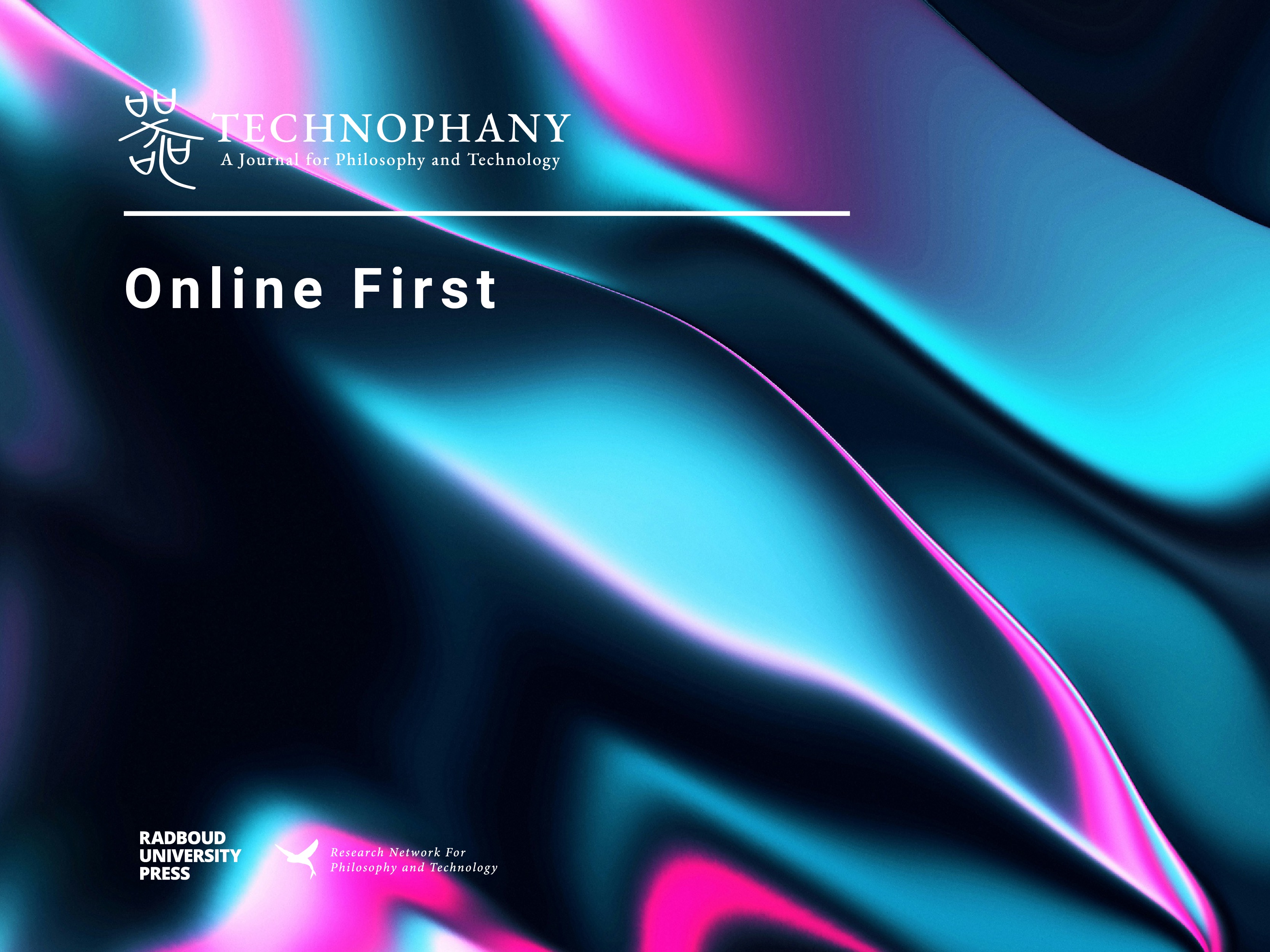
Online First
2026Technophany publishes on an "Online First" basis throughout the year, meaning final revision articles prior to their inclusion into the journal's yearly "General Issue" or guest edited "Special Issue" are attributed a unique DOI number and placed into their appropiate section allowing articles to be cited as soon as they are published.
-
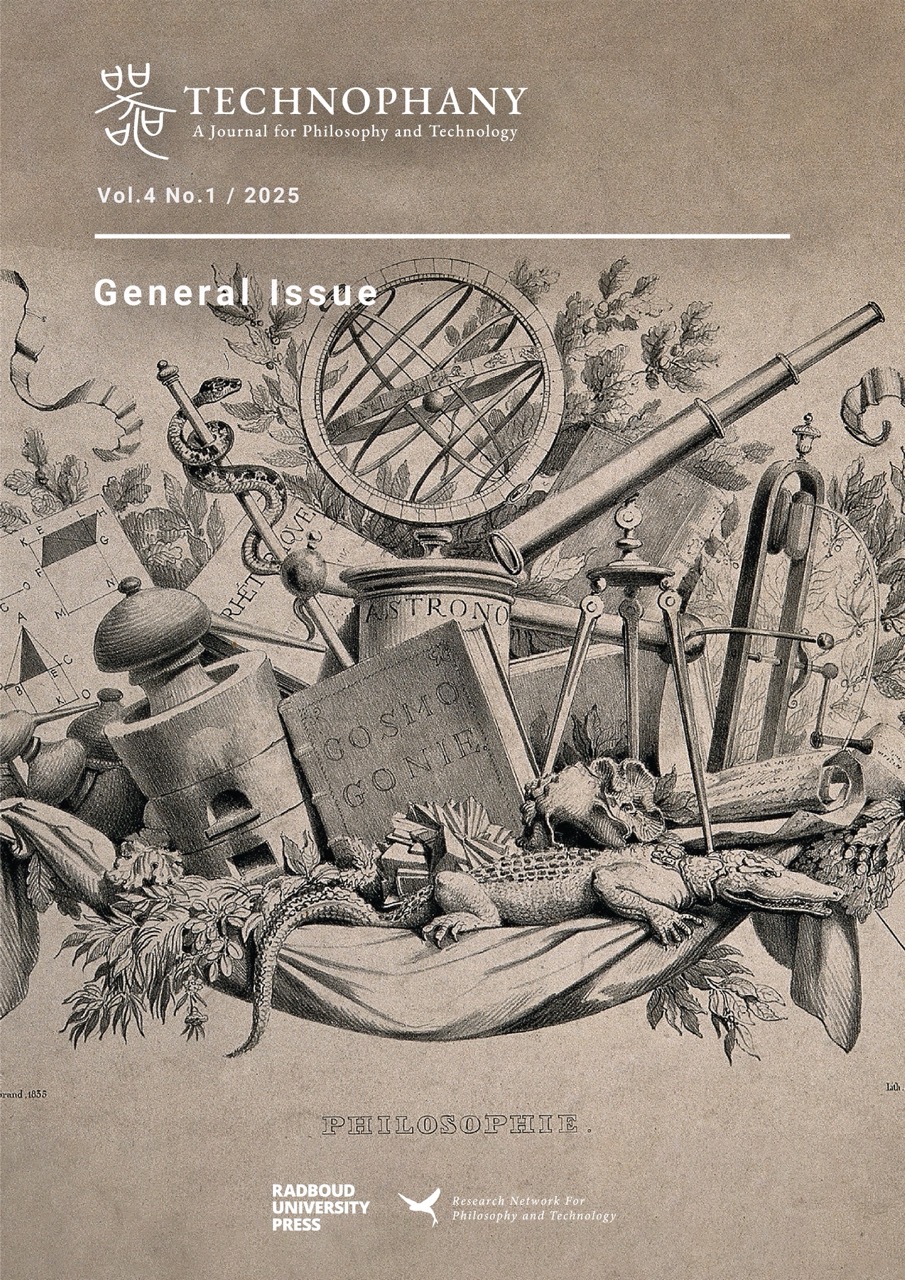
General Issue
Vol. 4 No. 1 (2025)Technophany's General Issue is published on an online first basis throughout the year. Collecting articles and book reviews dedicated to the philosophical thinking of science and technology, it offers a space for critical reflection aimed at comprehending and confronting the contemporary technological world and the epistemologies that underlie it.
-
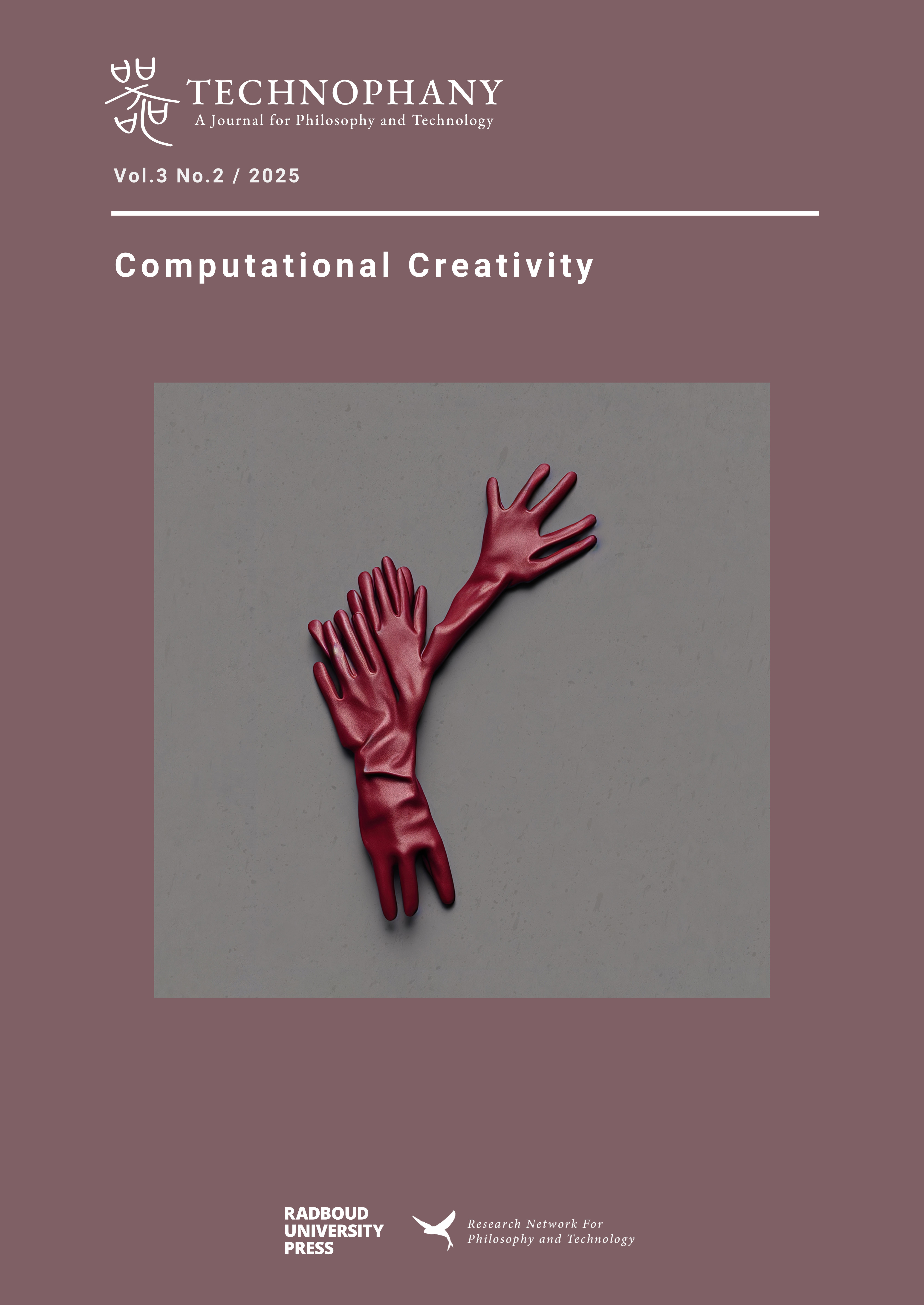
Computational Creativity
Vol. 3 No. 2 (2025)In the contemporary landscape of rapid technological advancements, Artificial Intelligence (AI) has emerged as an important factor in reshaping practices, world-views and expectations. One of the most intriguing and thought-provoking areas of AI's influence is its intersection with creativity. By deconstructing the cognitive processes involved in human creativity, researchers can design algorithms that simulate these processes. This involves machine learning, neural networks, evolutionary algorithms, and other AI techniques that enable computers to recognize patterns, generate new ideas, and refine them through iterative processes. Can AI's outputs—whether in painting, composing, writing, or other forms of artistic production—be considered genuinely creative, or are they mere reflections of the data and rules we feed into these systems?
-
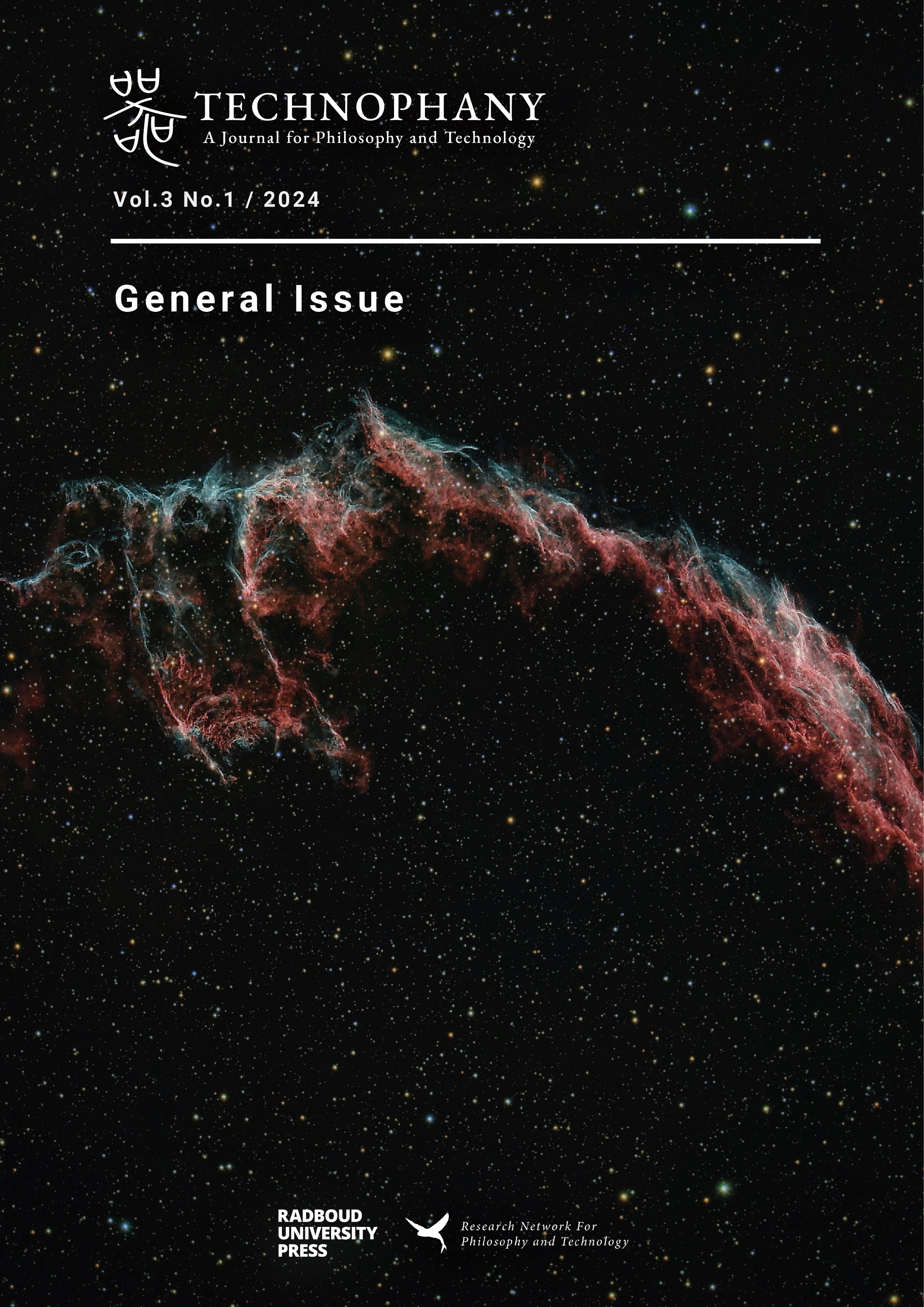
General Issue
Vol. 3 No. 1 (2024)Technophany's General Issue is published on an online first basis throughout the year. Collecting articles and book reviews dedicated to the philosophical thinking of science and technology, it offers a space for critical reflection aimed at comprehending and confronting the contemporary technological world and the epistemologies that underlie it.
-
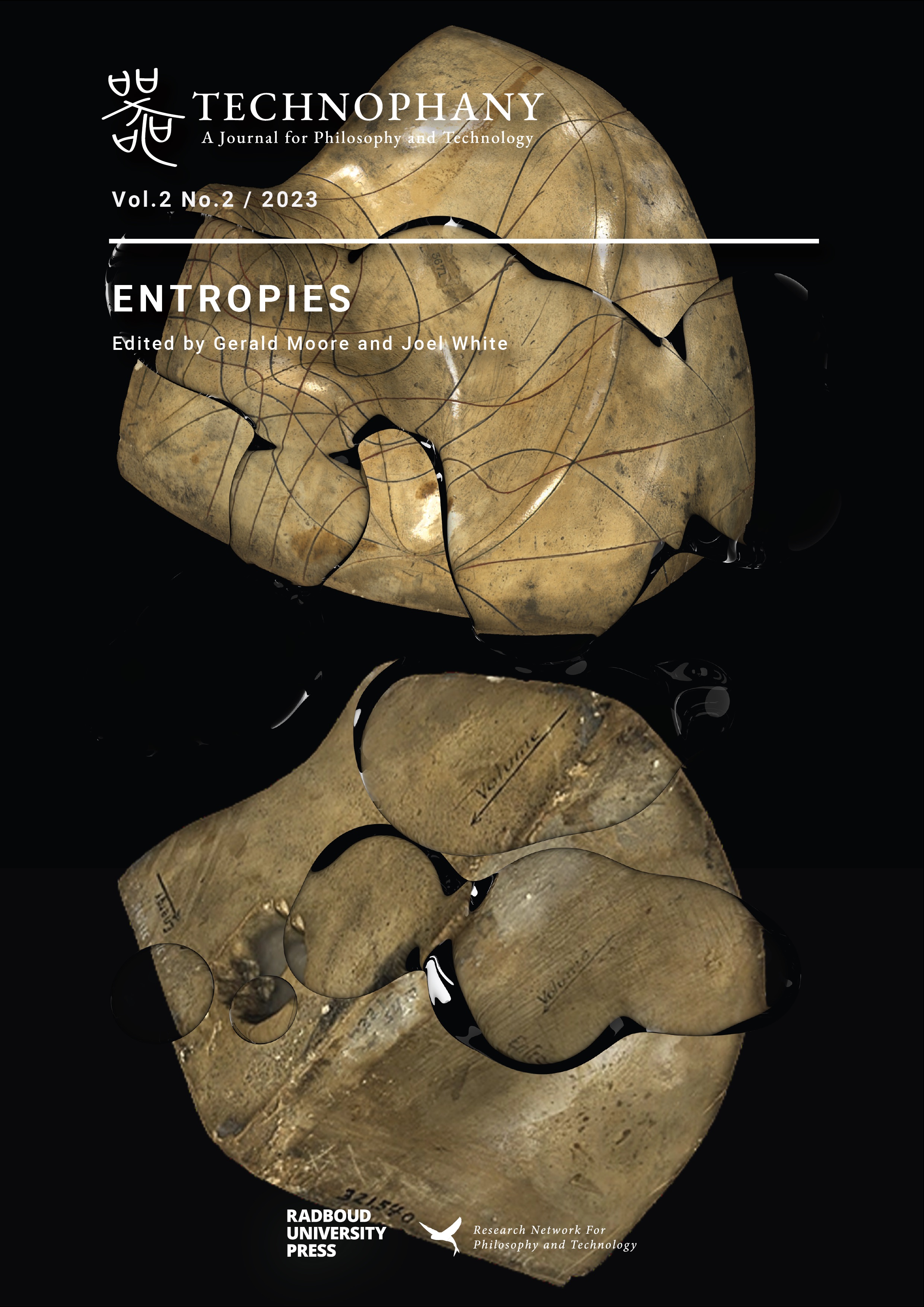
Entropies
Vol. 2 No. 2 (2024)The “Entropies” special issue of Technophany offers insight into how and why the concept of entropy—inclusive of its many historical definitions, expressions, and mathematical formulations—raises fundamental philosophical questions and problems. The concept of entropy has had several major historical scientific iterations, the three major being classical thermodynamic, statistical mechanical and information theoretic. Instead of concentrating on one type of entropy. The articles collected are, therefore, of a broad nature, reflective of entropy’s conceptual plurality. The aim has been not to determine what entropy is—whether quantitively or qualitatively—but to consider how this equivocal concept problematises our relation to fundamental phenomena such as life and death, technology, time, chance, information, and the cosmos.
-
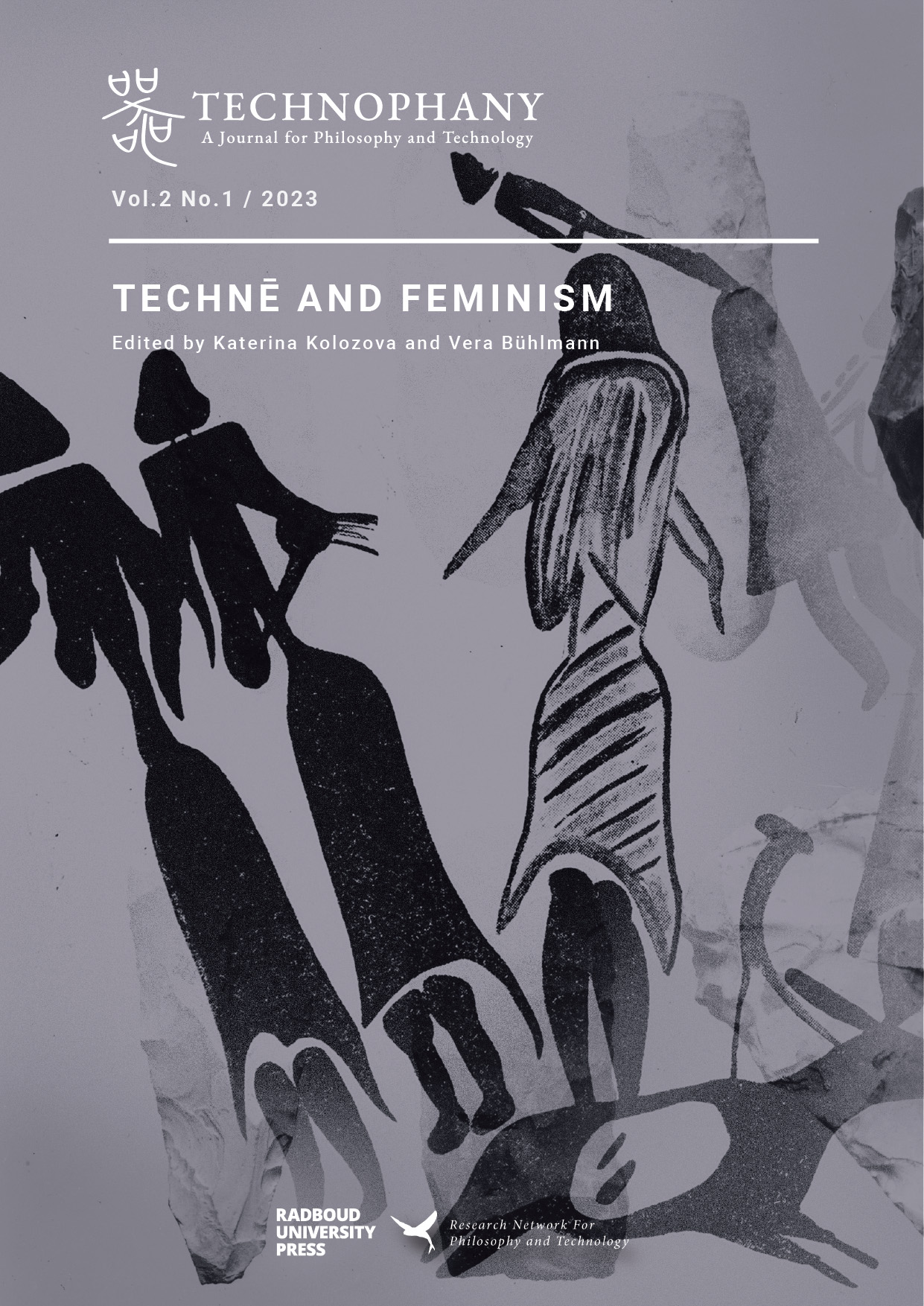
Technē and Feminism
Vol. 2 No. 1 (2023)Departing from the premise that the poststructuralist paradigm still reigns supreme in feminist and gender theory, that is, despite the niche efforts made in the past two decades to challenge it linked to the so called “speculative” turn or the materialisms (and realisms) emerging from the feminist field itself (such as the Utrecht School, inspired by Rosi Braidotti), we set the call for papers for the issue before you in terms that would invite authors ready to challenge the dominant epistemic framework. We invited papers that engage with materialism(s), realism(s), sciences and projects engaged in rethinking the post-human beyond the poststructuralist (and, we dare say, postmodern/ist) norm.
-
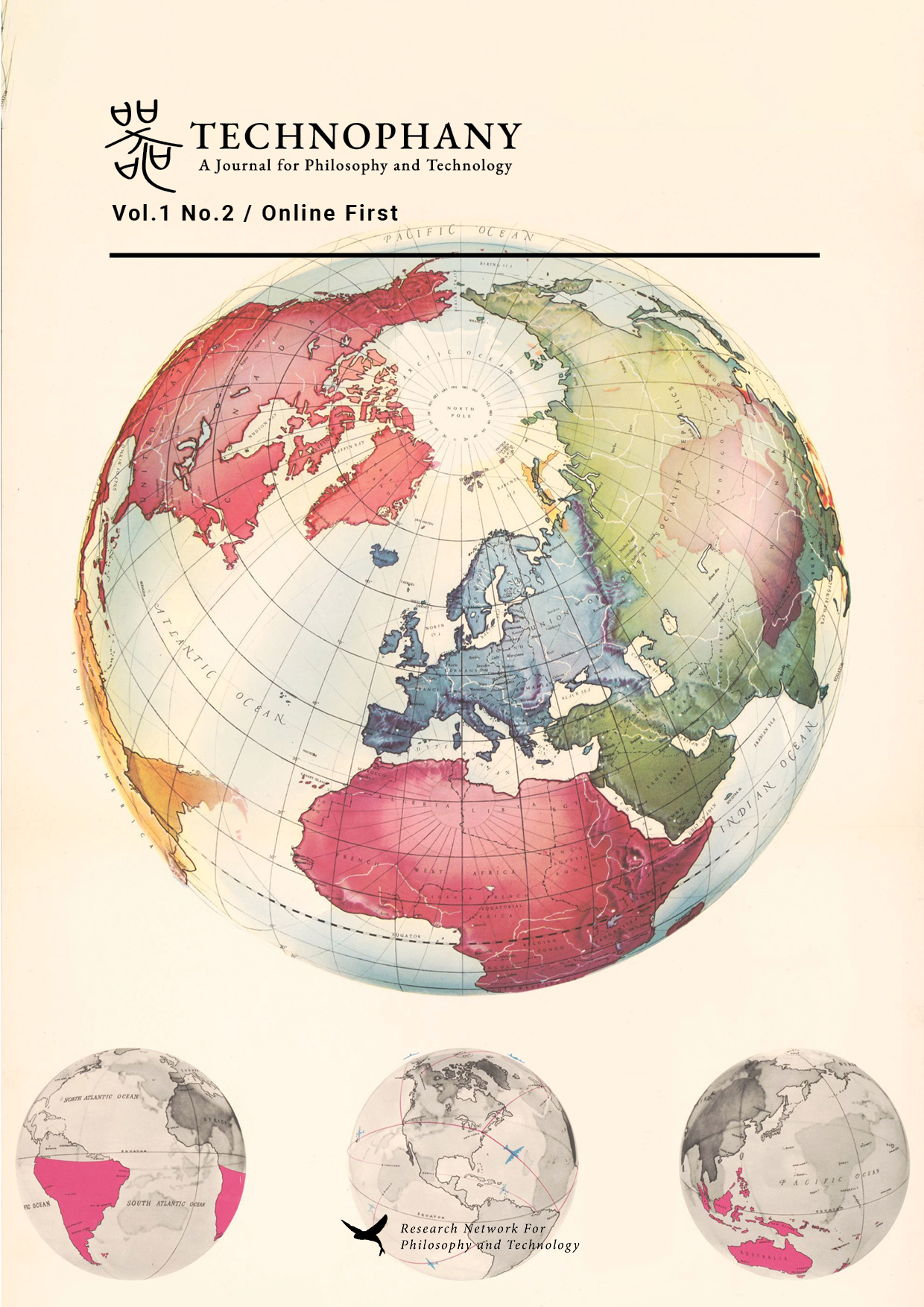
General Issue (2022-2023)
Vol. 1 No. 2Technophany's General Issue is published on an online first basis throughout the year. Collecting articles and book reviews dedicated to the philosophical thinking of science and technology, it offers a space for critical reflection aimed at comprehending and confronting the contemporary technological world and the epistemologies that underlie it.
-
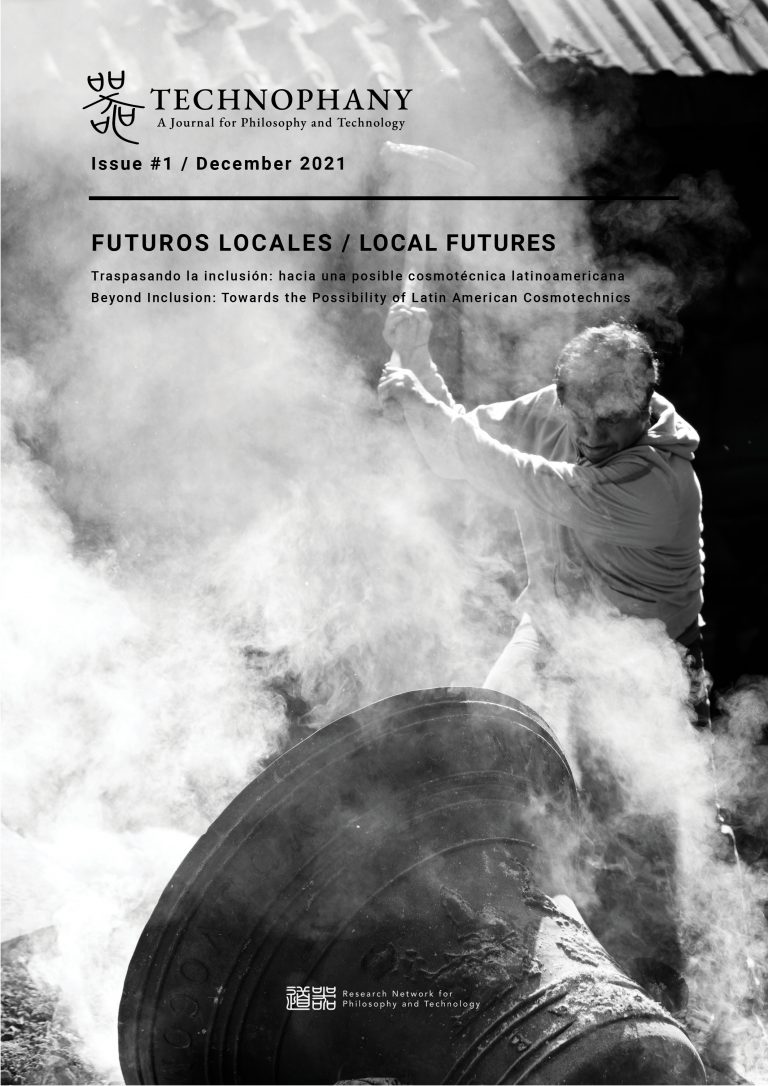
Futuros Locales / Local Futures
Vol. 1 No. 1 (2021)Beyond Inclusion: Towards a Possibility of Latin American Cosmotechnics
Could Yuk Hui’s concept of cosmotechnics be a useful tool for thinking about the particularity of a Latin American technological thinking? Approaching the fragmentary possibilities of Latin American techniques, which are linked by a shared territory and history yet not unified by them, is a strategy for reevaluating the effects of technological imperialism. This process has, nevertheless, no intention of homogenizing languages, mythologies, religions, cultures, ontologies and technics themselves. We rather aim to direct ourselves towards futures, which from the viewpoint of inclusion, we haven’t been able to imagine yet.



